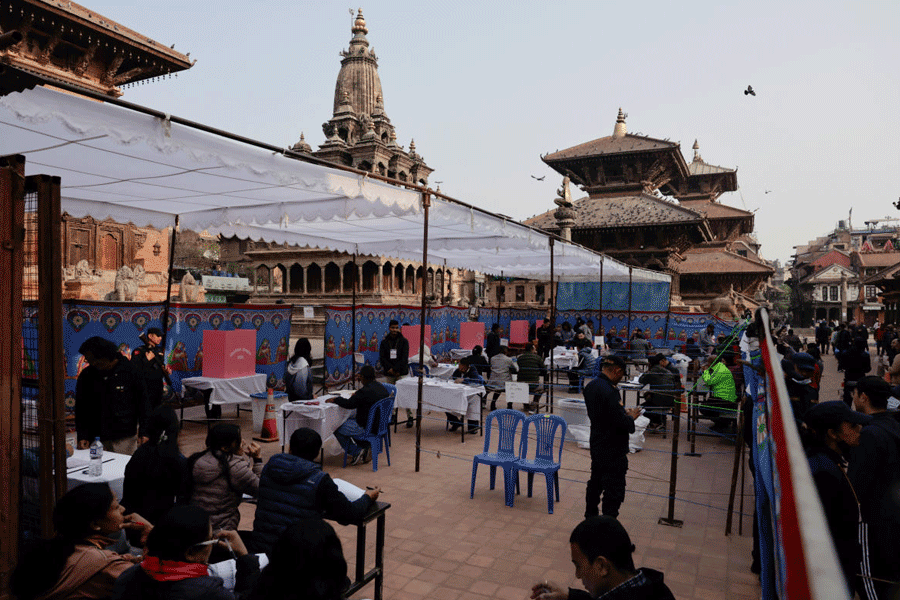 |
A happy Place and other stories By Vineetha Mokkil, HarperCollins, Rs 275
Delhi, as the author says, has a story at every turn; Its people are quick to embrace the ones that they identify as their own. However, there are many other stories that swing this way and that, like a leaf in the wind, and settle on those who least expect it. Here are the leaves that are picked up as one walks along and those which pick their suitable targets. Short stories are like that. They attach themselves to relationships that are discovered, grow and sometimes fade away within the life of the story. While there are exceptions that have been brilliantly penned, as a general rule in crafting a short story, most are of the opinion that the writer has to surrender, as skilfully as possible, aspects of ambience and tone and milieu for those that convey the mood and attitude and also the promise of action. This checkerboard of interior and exterior components all fitting in within a severely confined format is what draws the reader into the goings on and makes him, eventually, a part of the story. Viewed against these precepts, first time story teller Vineetha Mokkil has done well, more so because she has chosen the manifold desires and pressures of dense city living to mark out her stories, which is a prickly task, at best.
Indian readers have always been lovers of long stories, novels and even the ubiquitous serializations in the vernacular scene, for instance; short stories have not been a staple, notwithstanding Munshi Premchand, Saadat Hasan Manto, Chugtai, Sharadindu Bandyopadhyay and Satyajit Ray being close enough. Maybe, as they see it, a short story leaves much unsaid. Most of Mokkil’s stories — and there are sixteen of them in this compilation — leave things unsaid. Surely, she was aware of this risk even as she went ahead and wrote them the way she wanted to, without a recognizable theme, of love, longing, loss, sightings, trust, mistrust, envy, and so on. Mokkil does not go with the flow. Though there is a bit of all these elements in individual stories, the only decipherable leitmotif she is interested in appears to be city life, in all its complex formulations. In spite of this fact however, in her writing, city life remains a notion; there is not much effort on her part to probe the dimensions of the city to give it a disposition of its own, except to the extent that it, in some ways, creates the existential forces in her characters’ lives.
In the first of two particularly well crafted stories, a nondescript man, going nowhere in his job, is euphoric when he learns that his poem has been finally accepted by an esoteric magazine; seeing him so happy his crumby landlord asks for a rent increase; the man explains that publishing a poem isn’t a raise at the office; cut to next morning, he sees a young girl who had a car accident; no one does anything but stare so he cradles the seriously injured girl and takes her to the hospital where the usual time-consuming procedures kick in. We sense the inevitability; the girl’s father, who happens to be a well known politician, strides in with his people, makes the appropriate gestures and in a grandiose, media-centric, gesture, offers a token sum to the blood-soaked man who protests that he does not want the money. But the politico by then has already turned away to tell the hospital staff precisely who he is and what he wants to be done. Is this the city or is it the human condition?
In another story, a fatherless girl, struggling to make ends meet, is selected along with her schoolmates to sing for the president of India. She and the others are drilled to sing a patriotic song and come up with the right responses in his presence; a pre-meet tour of the presidential rose garden takes place and afterwards, when the president asks this girl what she wants to become when she grows up, she does not give him the answer she has been taught to give. In all the better stories in the collection, Mokkil is at her weakest when describing the city (hers could be any city) and strongest when she is writing about the people who have been forced to come to terms with it. It is not surprising that one of her best story is set 750 kilometres away from Delhi.
Closer home, in a rare instance of specifying exactly where, a besotted young man waits over endless cups of coffee in a café across from where his target lives and works at her unusual skills, trying to summon up enough courage to go across to her until Mokkil constructs a wonderful denouement. This story is one of her best works. This is not to imply that all the other stories are flat, they are not. Poor editing along with sketchy research have overshadowed an otherwise fine writing.
However, Mokkil has made a fine debut and her stories do not fail to touch a chord with the readers.










